
Williams College is a private liberal arts college in Williamstown, Massachusetts. It was established as a men's college in 1793 with funds from the estate of Ephraim Williams, a colonist from the Province of Massachusetts Bay who was killed in the French and Indian War in 1755. It is the second-oldest institution of higher education in the Commonwealth of Massachusetts after Harvard College.
George Foot Moore was an eminent historian of religion, author, Presbyterian minister, 33rd Degree Mason of the Ancient and Accepted Scottish Rite, and accomplished teacher.

Daniel Coit Gilman was an American educator and academic. Gilman was instrumental in founding the Sheffield Scientific School at Yale College, and subsequently served as the second president of the University of California, Berkeley, as the first president of Johns Hopkins University, and as founding president of the Carnegie Institution. He was also co-founder of the Russell Trust Association, which administers the business affairs of Yale's Skull and Bones society. Gilman served for twenty five years as president of Johns Hopkins; his inauguration in 1876 has been said to mark "the starting point of postgraduate education in the U.S."

Kappa Kappa Kappa, known informally as Tri-Kap, is a local men's fraternity at Dartmouth College in Hanover, New Hampshire. The fraternity was founded in 1842 and is the second-oldest fraternity at Dartmouth College.Tri-Kap is the oldest local fraternity in the United States. It is located at 1 Webster Avenue, Hanover, New Hampshire.
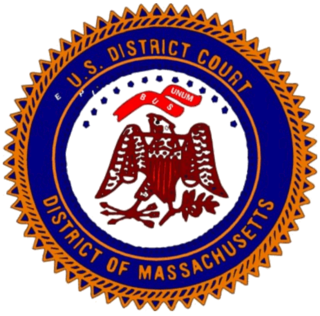
The United States District Court for the District of Massachusetts is the federal district court whose territorial jurisdiction is the Commonwealth of Massachusetts, United States. The first court session was held in Boston in 1789. The second term was held in Salem in 1790 and court session locations alternated between the two cities until 1813. That year, Boston became the court's permanent home. A western division was opened in Springfield in 1979 and a central division was opened in Worcester in 1987. The court's main building is the John Joseph Moakley Federal Courthouse on Fan Pier in South Boston.
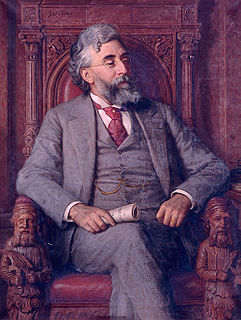
Charles Kendall Adams was an American educator and historian. He served as the second president of Cornell University from 1885 until 1892, and as president of the University of Wisconsin from 1892 until 1901. At Cornell he established a new law school, built a library, and appointed eminent research professors for the Ivy League school. At Wisconsin, he negotiated ever-increasing appropriations from the state legislature, especially for new buildings such as the library. He was the editor-in-chief of Johnson's Universal Cyclopaedia (1892–1895), and of the successor Universal Cyclopaedia (1900), sometimes referred to as Appleton's Universal Cyclopaedia.

Austin Scott was the tenth President of Rutgers College, serving from 1891 to 1906.

Thomas Day Seymour was an American classical scholar. He spent most of his career as a Professor of Greek at Yale University and published primarily on the works of Homer.
George Williams may refer to:

George Trumbull Ladd was an American philosopher, educator and psychologist.

Benjamin Ide Wheeler was a professor of Greek and comparative philology at Cornell University, writer, and President of the University of California from 1899 to 1919.

Franklin Carter was an American professor of Germanic and romance languages and served as President of Williams College from 1881 to 1901.

William Adams was a noted American clergyman and academic.
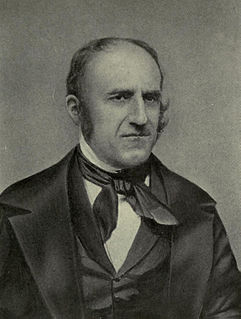
Mark Hopkins was an American educator and Congregationalist theologian, president of Williams College from 1836 to 1872. An epigram — widely attributed to President James A. Garfield, a student of Hopkins — defined an ideal college as "Mark Hopkins on one end of a log and a student on the other".
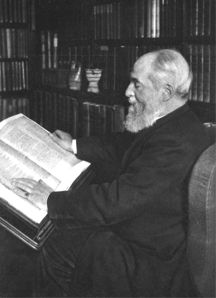
Henry Barclay Swete was an English biblical scholar. He became Regius Professor of Divinity at Cambridge in 1890. He is known for his 1906 commentary on the Book of Revelation, and other works of exegesis.

Henry Andrews Bumstead was an American physicist who taught at Yale from 1897 to 1920. In 1918 he was scientific attache to the United States embassy in London. In 1920 he was Chairman of the National Research Council.
Henry Hopkins was an American Congregationalist pastor and President of Williams College.
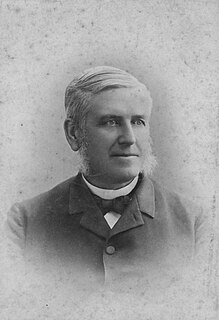
Charles McEwen Hyde was a Congregationalist missionary who arrived in Hawaii in 1877. He was instrumental in establishing and supporting schools to educate and train the Hawaiian population of the time. Hyde mentored native Hawaiians who wanted to enter the Christian ministry, and he helped provide smallpox vaccinations for the population. He was a descendant of Scottish Covenanters, and one of the original five trustees of Kamehameha Schools. Private correspondence about Father Damien, penned by Hyde and published without his permission, sparked a heated public rebuke from Robert Louis Stevenson who expressed his belief that sainthood lay ahead for Damien.
David Newton Sheldon was the fifth President of Colby College, Maine, United States from 1843–1853. He was also a pastor, missionary, and educator.

Henry Prentiss Armsby was an American agricultural chemist, animal nutritionist, and academic administrator. He served as Vice Principal and Acting Principal of the Storrs Agricultural School (1881–1883), associate director of the Wisconsin Agricultural Experiment Station (1883–1887), and director of the Agricultural Experiment Station (1887–1907) and the Institute of Animal Nutrition (1907–1921) at the Pennsylvania State University.
















